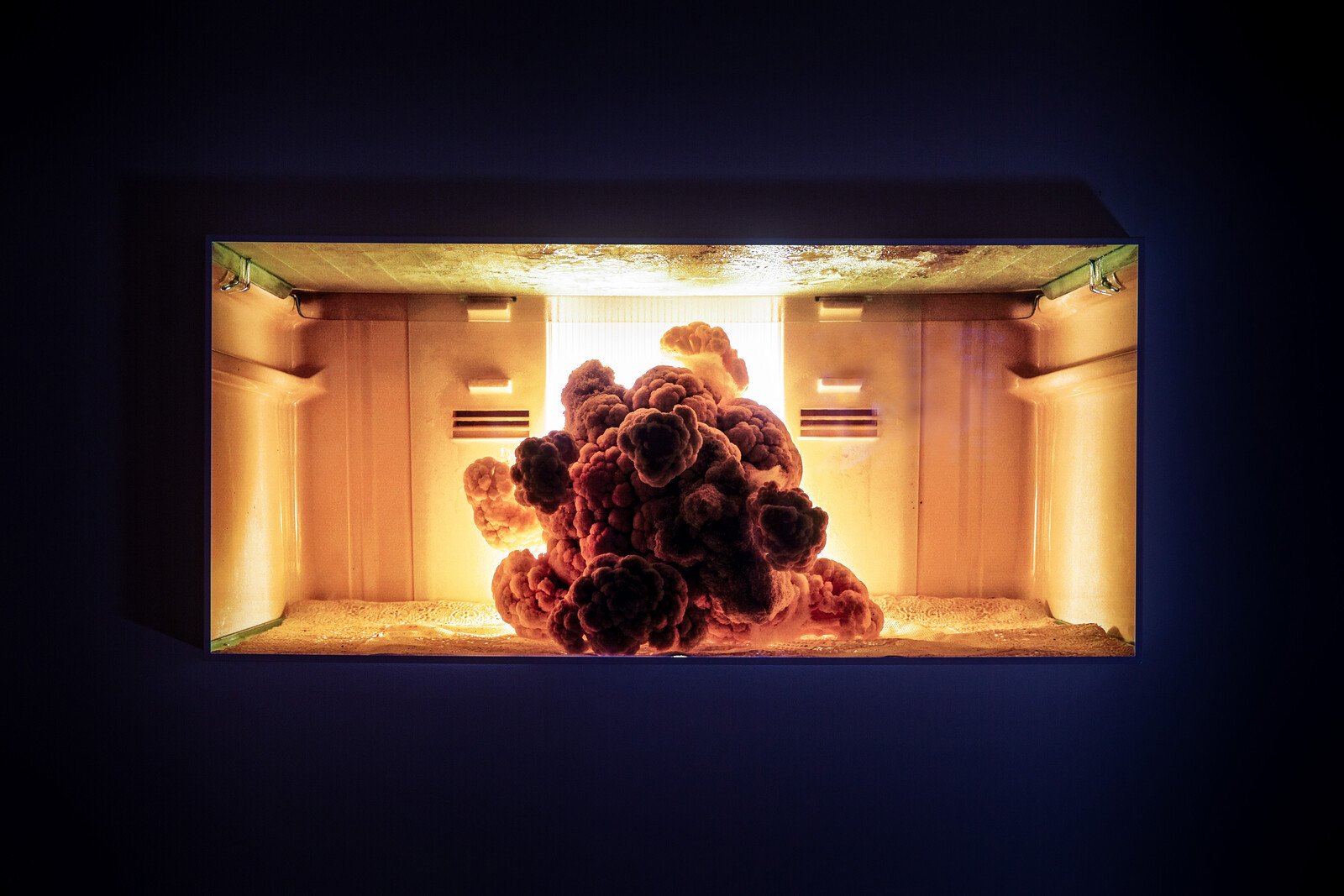Modernism between Space and Home
October 16, 2021–February 20, 2022
No. 181 Zhongshan N. Road Sec. 3
Taipei 10461
Taiwan
The Taipei Fine Arts Museum (TFAM) is delighted to present Art Histories of a Forever War: Modernism between Space and Home.
In the face of renewed geopolitical interests in Taiwan, technological warfare and planetary crises that demand new shared global visions, the exhibition is a provocative art historical charting of Cold War legacies into the contemporary. Based on a research project by guest curators Kathleen Ditzig and Hsu Fang-Tze, it constellates the development of modern art in Taiwan as part of a global history and presses the urgent question: In an increasingly divided world, can art write over the lacunas of history and geopolitics?
Art Histories of a Forever War features canonical modern artworks from TFAM’s permanent collection by Chen Chi-Kuan, Chen Ting-Shih, Chin Sung, Han Hsiang-Ning, Hsia Yan, Hsiao Chin, Lee Shi-Chi, Liu Kuo-Sung, Li Yuan-Chia, Long Chinsan, Shaih Lifa, Yang Yuyu and Yen Shui-Long.
The exhibition also presents works by Cho Chung-Yung, Ma Shou-Hua, Ran In-Ting, and Wang Da-Hong; historical material loaned from archives, libraries and museums from Taiwan and around the world; and contemporary artworks by Erika Tan (Singapore/United Kingdom), Sung Tieu (Vietnam/Germany), Maria Taniguchi (Philippines), Chen Yin-Ju (Taiwan), Prajakta Potnis (India), Aya Rodriguez-Izumi (Okinawa/US), Doris Wong Wai Yin (Hong Kong), Yee I-Lann (Borneo), Writing FACTory (Taiwan) in collaboration with Joy Ho (Singapore) and Joanne Ho (Singapore).
Addressing the complexity of a global history, the exhibition is organized into three themes: “Cosmotechnics after the Space Race,” “Global Domestic,” and “Aesthetic Networks of the Free World.” Focusing on how the moon landing of 1969 inspired modern artists, “Cosmotechnics after the Space Race” brings together works that not only celebrated the moon landing but also registered a philosophical and perspectival shift in Chinese modern art. Presented in dialogue and thus pointing to an enduring cosmic imagination, Chen Yin-Ju’s installation Extrastellar Evaluations (2016) posits a speculative historiography of the 1960s.
“Global Domestic,” features crystals engraved with work by modern Taiwanese artists, material on the international circulation of craft from Taiwan and artworks that extrapolated the modern home as a front for an ideological homeland. Yee I-Lann’s The Tinukad Sequence 02 (2021), a large bamboo woven mat by female indigenous weavers from Sabah and Maria Taniguchi’s Untitled (Celestial Motors) (2012), a video which celebrates the glimmering modern form of the jeepney, discursively raise compelling questions about the insidious neo-colonialism of modern art and design. Doris Wong Wai Yin’s Being Dead Will Be Our Only Shared Identity (2016), consisting of portraits of a mother with a gas mask on, extends this inquiry to domesticity. Erika Tan’s expansive installation Barang-Barang (2021) speculatively imagines a meeting between four female artists: Dora Gordine, Georgetta Chen, Kim Lim and her mother, Fay Tan and reflects upon the enduring historical entanglements between the objects we inherit and the art histories we write.
As the Free Face of China, The Republic of China in Taiwan represented one of the ideological frontlines of the Cold War. “Aesthetic Networks of the Free World” reviews modern artists from Taiwan and their development of an international language of Chinese modern art as they navigated the networks of US-aligned countries. Presented alongside, Prajakta Potnis’ installation Kitchen Debate (2014–) captures a persistent anxiety that emerged from these networks. Okinawan-American artist Aya Rodriguez-Izumi’s installation Echoes from the Last Battle (2017–), inspired by a book illustrated by her father, and Sung Tieu’s installations, Exposure To Havana Syndrome, Brain Anatomy, Coronal Plane (Sample 1-12) (2021) and Songs for Unattended Items (2018), reveal the psychic traces of the 20th Century wars.
Commissioned for the exhibition, New Earth No. 3069, by Joy Ho, Joanne Ho and Writing FACTory is a web-based graphic novel that accounts an interstellar colonizing expedition in a future without nations and run by a mega-corporation. A veiled retelling of the duplicitous history of our contemporary world-order, the story imagines an alternate universe for modern art from the exhibition.









